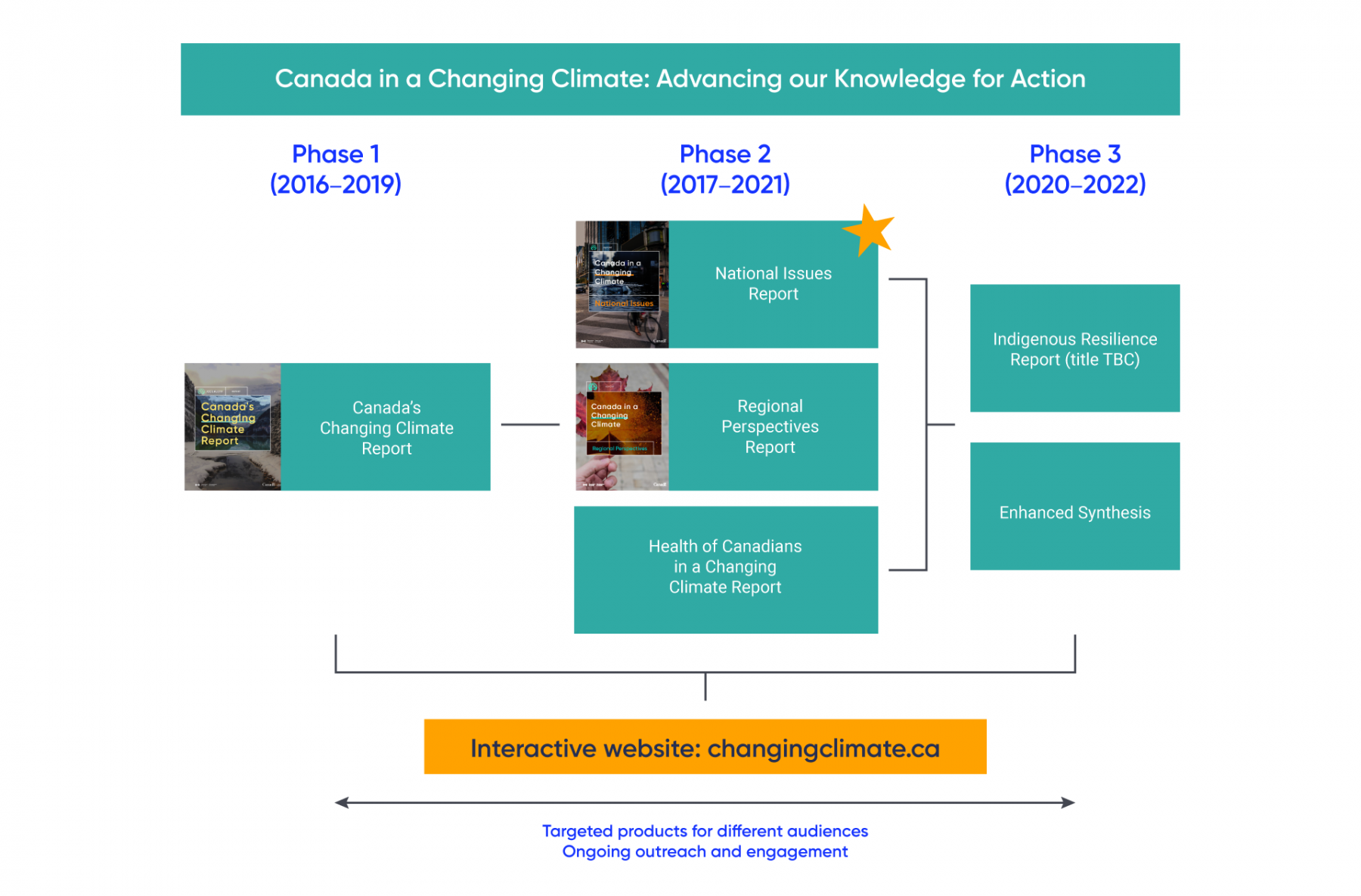Introduction
Canada’s changing climate is causing deep and lasting impacts on our society, economy and environment. Higher temperatures, shifting rainfall patterns, extreme weather events and rising sea levels are just some of the changes already affecting many aspects of our lives. Changes in climate will persist and, in many cases, will intensify over the coming decades. Understanding these impacts is necessary to reduce risks, build resilience and support sound decision-making.
In 2017, the Government of Canada launched the National Knowledge Assessment process, Canada in a Changing Climate: Advancing our Knowledge for Action. This multi-year, collaborative initiative is delivering a series of authoritative reports (see Figure O.1) that focus on how and why Canada’s climate is changing, the impacts of these changes and how we are adapting.
Figure O.4
-
Figure O.4
An overview of the products being produced under Canada in a Changing Climate: Advancing our Knowledge for Action. Natural Resources Canada is leading the process and depends on the collaboration of a broad partnership of subject-matter experts and assessment users, including from all orders of government, Indigenous organizations, universities, professional and non-governmental groups, and the private sector. To learn more about the assessment process, visit adaptation.nrcan.gc.ca.
The first report in the series, Canada’s Changing Climate Report (CCCR), was released in 2019. It assessed Canada’s changing climate, covering observed and projected changes in temperature, precipitation, snow, ice, permafrost and freshwater availability, including changes in Canada’s three oceans (see Box O.1).
The National Issues Report builds on the CCCR, providing answers to questions such as:
- What do these changes in climate mean for those living in Canada?
- How can we adapt to increase resilience, reduce risks and costs, and take advantage of potential opportunities?
- Where have we made progress on addressing climate change impacts and adaptation?
- Where do gaps in knowledge and action remain?
The National Issues Report focuses on climate change impacts and adaptation issues that are of national importance or that are best understood through an integrated, pan-Canadian perspective. It is structured around the main elements of sustainability—society, the environment and the economy—and includes a chapter on international dimensions.
